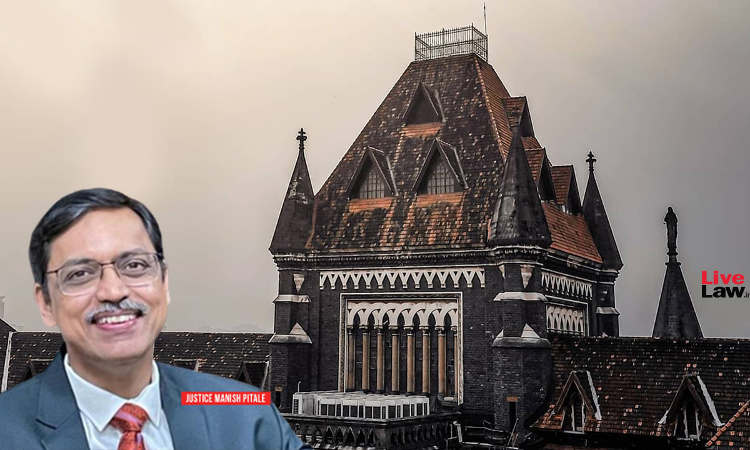- Home
- /
- High Courts
- /
- Bombay High Court
- /
- Apportionment Of Liability Without...
Apportionment Of Liability Without Evidence Is Akin To 'Panchayati Approach': Bombay High Court Sets Aside NSE Arbitral Award Against Broker
Mohd Malik Chauhan
15 Oct 2025 3:35 PM IST
The Bombay High Court set aside an arbitral award passed under National Stock Exchange (NSE) bye-laws that had upheld an order passed by Investor Grievance Redressal Panel (IGRP) directing Peerless Securities Limited to pay ₹7.18 lakhs to Vostok (Fareast) Securities Pvt. Ltd. for the losses caused by unauthorised trading in the trading and future segment. The IGRP had held that...
The Bombay High Court set aside an arbitral award passed under National Stock Exchange (NSE) bye-laws that had upheld an order passed by Investor Grievance Redressal Panel (IGRP) directing Peerless Securities Limited to pay ₹7.18 lakhs to Vostok (Fareast) Securities Pvt. Ltd. for the losses caused by unauthorised trading in the trading and future segment. The IGRP had held that both the parties were equally responsible for the losses and directed the broker to bear 50% of the liability. This order was further confirmed by the arbitrator. The award had been challenged under section 34 of the Arbitration and Conciliation Act, 1996 (Arbitration Act).
Justice Manish Pitale held that “this Court in the case of Dhwaja Shares and Securities Private Limited Vs. Sunita A. Khatod (supra) held that simply halving the amount claimed by the aggrieved party and awarding it, amounts to an irrational and unreasoned approach. In fact, it was deprecated as being akin to a panchayati approach in such matters. Such an approach also shows that the learned arbitrator proceeded on the basis of no evidence to reach such a conclusion. This clearly takes it into the arena of Section 34(2-A) of the Arbitration Act, pertaining to patent illegality”.
The Petitioner submitted that the arbitral award is liable to be set aside on two counts. Firstly, it was passed in disregard of the binding precedents. Secondly, it was patently illegal as the arbitrator had simply apportioned the liability without evidentiary basis. It was further submitted that the arbitrator's reliance on Regulation 3.4.1 of the NSE (F&O Segment) Trading Regulations was misplaced as the said regulation was directory in nature prior to the SEBI's circular issued on 26.09.2017, as held in Ulhas Dandekar.
Per contra, the Respondent submitted that the broker had induced the petitioner into trading by fraudulently showing initial profits. The broker had continued trading even after clear instructions on March 25, 2017 to square off all positions which caused losses. Lastly, it was submitted that the broker had failed to provide any post trade confirmations.
Findings:
The Court observed that both the IGRP and the sole arbitrator had failed to appreciate the important facts correctly. The arbitrator's reliance on the alleged strong instructions was misplaced as there was no written proof of such communication.
It held that “It is found that the sole arbitrator, in the impugned award, has placed much emphasis on the respondent 'strongly instructing' the petitioner to give a detailed account of profit and to square up all the positions as per instructions given on 25.03.2017. Record shows that there was no such written instruction ever given by the respondent.”
The court further noted that there were inconsistencies in the arguments of the respondent that it was induced continued trading based on conflicting reports dated April and May 2017 which contradicted the claim that the respondent was induced continued trading after March 2017. The court further held that the arbitrator's interpretation of Regulation 3.4.1 as mandatory was erroneous and contravened the binding precedent in Ulhas Dandekar.
The court held that “the judgement of the learned Single Judge of this Court in the case of Ulhas Dandekar lay down the law that Regulation 3.4.1 of the said Regulations is, at best, directory and not mandatory. Thus, it can be said that the impugned arbitral award is in conflict with the said established position of law and hence it is in conflict with public policy of India under Section 34(2)(b)(ii) of the Arbitration Act.
On issue of patent illegality, the court held that the 50:50 apportionment of the liability done by the arbitrator was irrational and unreasonable. The court held that such mechanical division without empirical evidence amounts to perverse finding under Associate Builders v. DDA. Citing Dhwaja Shares and Securities Private Limited Vs. Sunita A. Khatod, the court concluded that “simply halving the amount claimed and awarding it amounts to an irrational and unreasoned approach… akin to a panchayati decision-making process.”
Accordingly, the impugned arbitral award was quashed and set aside.
Case Title: Peerless Securities Limited Vs. Vostok (Fareast) Securities Pvt. Ltd
Case Number: ARBITRATION PETITION NO.157 OF 2021
Order Date: 14/10/2025



